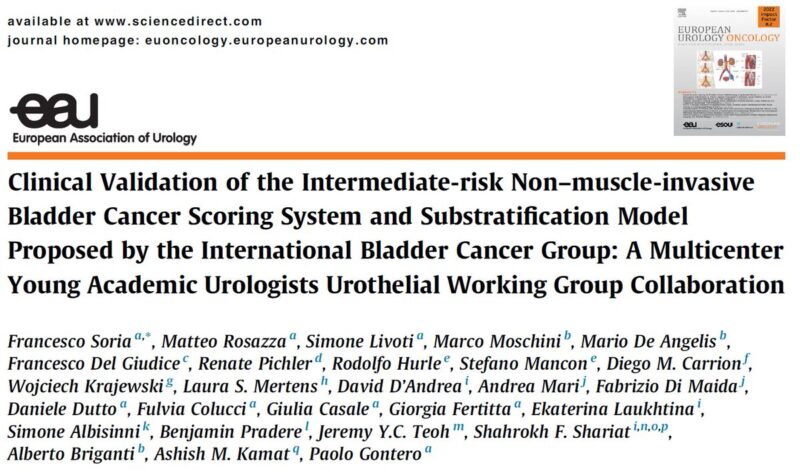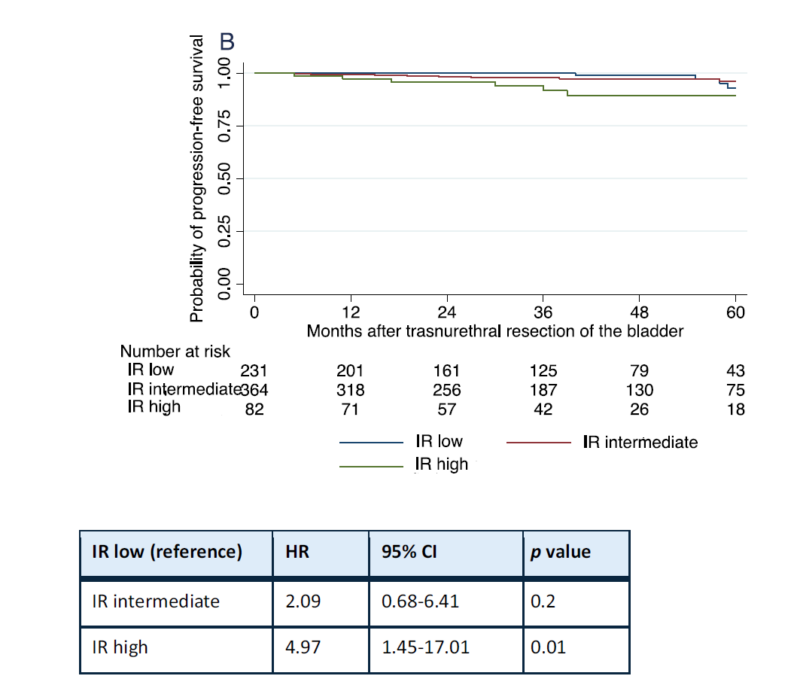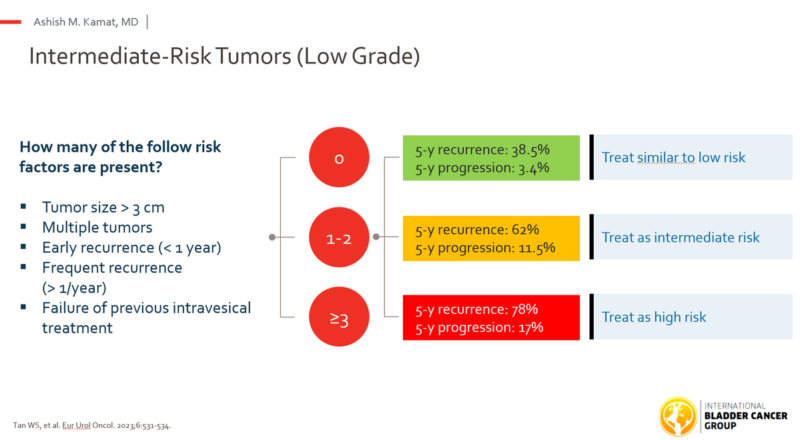
Ashish Kamat: IBCG scoring system and substratification model for IR NMIBC
Ashish Kamat, Endowed Professor of Urologic Oncology (Surgery) and Cancer Research at University of Texas MD Anderson Cancer Center, shared a post on X:
“Clinical Validation of the Intermediate-risk NMIBC Scoring System and Substratification Model Proposed by the IBCG (International Bladder Cancer Group): A Multicenter YAU Urothelial Working Group Collaboration.

New study published in European Urology Oncology validates the IBCG scoring system and substratification model for IR NMIBC.
This comprehensive multicenter study analyzed data from 677 patients treated between 2012 and 2022.
The study stratified patients into three groups: IR-low, IR-intermediate, and IR-high, based on key risk factors (from Tan et al, EUO, 2022):
Tumor size >3 cm.
Multifocal disease.
Early recurrence.
Frequent recurrence.
Previous intravesical treatment failure.
These factors significantly impacted recurrence-free survival (RFS) and progression-free survival (PFS) rates.
IBCG paper here.
Key findings: the IBCG IR-NMIBC Risk Scoring stratification accurately predicts outcomes, highlighting its clinical utility.
IR-low group: 1-year recurrence rate of 10.7% and a progression rate of 0%.
IR-intermediate group: 1-year recurrence rate of 13.1% and a progression rate of 0.6%.
IR-high group: a 1-year recurrence rate of 33.5% and a progression rate of 2.6%.

Notably, the study found:
The IR-low group had a similar progression risk to the EAU 2021 low-risk NMIBC group (0.4% at 3 years).
BUT: The IR-high group had a very-high progression risk (9% at 3 years), similar to the EAU high-risk NMIBC group – meaning that LOW GRADE tumors are not always ‘benign’.
These insights pave the way for incorporating this stratification model into everyday clinical practice, advancing personalized medicine in bladder cancer care.

The study supports the use of the IBCG scoring system in clinical practice. Patients can be better categorized based on their risk profiles, leading to optimized treatment decisions and improved patient outcomes.

Congratulations to Francesco Soria, Matteo Rosazza, Paolo Gontero, and the entire international team of Young Academic Urologists for this important study, underscores the importance of collaborative efforts in advancing cancer research and patient care.”
Visit the article website.
Source: Ashish Kamat/X
